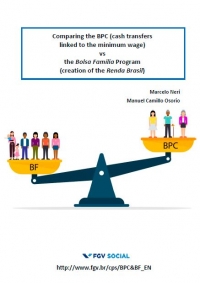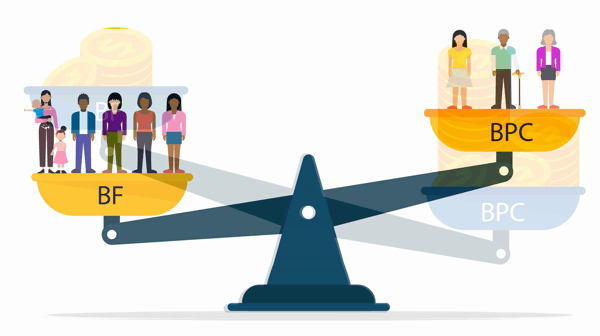
Comparing the BPC (cash transfers linked to the minimum wage) vs the Bolsa Família Program (creation of the Renda Brasil)
About the research:
Is it better to strengthen the BPC (i.e. cash transfers linked to the minimum wage) or expand the Bolsa Família program (e.g. by creating the Renda Brasil)?
FGV Social assess the rejection of the Renda Brasil program vis-à-vis cash transfers attached to the minimum wage. According to our estimates, it would be better to expand the Bolsa Família program (PBF, also known as Family Grant) if the goal is to reduce poverty in a fiscally sustainable manner. Each extra Brazilian real (R$) spent on the Family Grant has a 673% higher impact on poverty than a similar increase of the BPC (Continuous Welfare Grant), the best-targeted cash transfer among all Federal Government’s policies that are linked to the minimum wage (e.g. public pensions, the Wage Bonus (Abono Salarial) and the Family Wage (Salário Família)). Consequently, the PBF is the most fiscally efficient solution to alleviate poverty, a fact that cannot be forgotten in Brazil after the Covid-19 pandemic, after the end of the Emergency Grant (Auxílio Emergencial). The time has come to abandon the wrong hypothesis, deeply rooted in Brazilian society, that the minimum wage is the best tool to reduce poverty. We have evidence showing that cash transfers linked to the minimum wage – which is the lighthouse of Brazilian social policies - are less efficient and effective than the PBF. Among the possible financing solutions for expanding the Family Grant are both the administrative and tax reforms.
Marcelo Neri e Manuel Camillo Osorio
Site em Português / Site in Portuguese 
| Contact: marcelo.neri@fgv.br / fgvsocial@fgv.br / Tel: +5521 37992320





